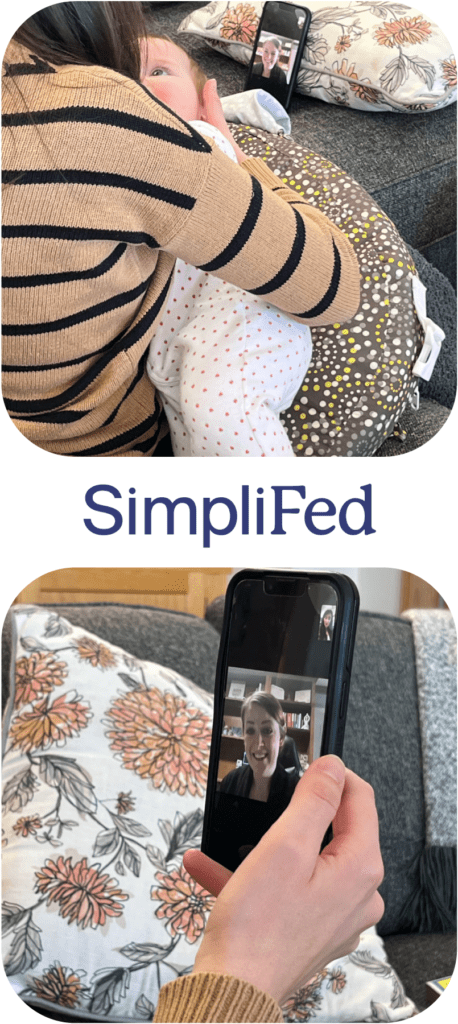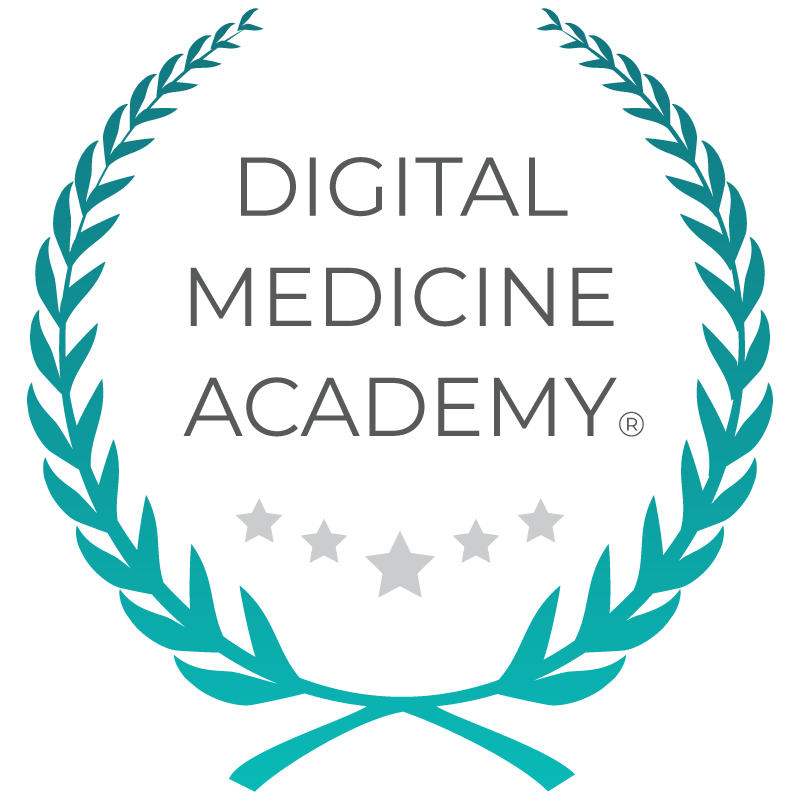
From challenge to change: SimpliFed’s innovative virtual first care (V1C) approach to maternal health
“We are proud to be a member of the V1C Coalition. Our hope is to garner promising best practices from across the Coalition’s expansive ecosystem so that we can continue developing proactive V1C models to advance maternal health. The maternal care health experience, especially the vacuum of care postpartum, is ripe for redesign, and we believe V1C, in partnership with health plans and healthcare systems, can dramatically change outcomes for families and babies.” – Andrea Ippolito, CEO and Founder, SimpliFed

SimpliFed
Maternal health
Ithaca, NY
- Maternal morbidity and mortality rates are highest during the postpartum period
- Geographic and logistical barriers contribute to limited access to lactation consultants
- Integration of V1C is essential for maternal and infant well-being because they are recovering at home
- Breastfeeding, along with maternal health, are critical gateways to more consistent long-term care for mothers and families
On average, pregnant women visit their OBGYN 12-15 times for prenatal checkups, a crucial step toward preparing for a successful birth. However, after a two to three-day hospital stay for labor and delivery, they face a significant gap—waiting six weeks for their first postpartum appointment, a visit that nearly 40% of women miss due to the challenges of managing a newborn. How can comprehensive postpartum care be delivered in a mere 30-minute visit? Following the six-week postpartum appointment, women often lack formal healthcare support, creating a significant gap in care during the critical first year, which can leave their physical and emotional needs unmet.
This gap is especially concerning because the majority of maternal mortality and morbidity issues occur during this vulnerable postpartum period, and follow-up care is alarmingly inadequate. Mothers often leave the hospital with limited resources, especially regarding infant feeding. While 85% of women begin breastfeeding, only 25% reach the American College of Obstetricians and Gynecologists (ACOG) and American Academy of Pediatrics (AAP) medical recommendations. Health insurance may cover a lactation consultant—which they are required to do, according to the Affordable Care Act, but many do not comply with this policy—but moms in rural areas often need help accessing this support. Geographic and logistical barriers can prevent timely access to necessary care, leading to delays and complications.
Integrating a virtual first care (V1C) approach is crucial for new moms. The approach ultimately helps create a culture of preventative care and empowers women to seek regular medical attention for themselves and their families, both in person and virtually. This helps new mothers overcome the many challenges of accessing continuous postpartum support for their health and well-being, breastfeeding, and infant care.
Turning personal experiences into an innovative solution
And this is exactly why Andrea Ippolito founded SimpliFed in 2019. After the birth of her first daughter, Andrea faced significant challenges with breastfeeding, experiencing the emotional and physical toll it took on both herself and her baby. Living in Ithaca, NY—a place with the highest breastfeeding rates in the state and a wealth of lactation consultants—only intensified her awareness of the gaps in care. Despite her extensive healthcare background and being married to a physician, the lack of support during her breastfeeding journey left her feeling overwhelmed and in need of help.
With her strong business expertise as the co-founder of Smart Scheduling—an innovative application designed to improve access to care that was acquired by athenahealth in 2016—Andrea recognized the urgent need to redesign maternal care. Given the existing gaps in maternal health and the Affordable Care Act’s requirement for health plans to cover women’s preventive health services, she understood that a new approach was necessary, particularly one that could bring care into the home.
The opportunity was to identify how to redesign care delivery effectively and facilitate in-home services. The sweet spot involved creating a strong relationship with V1C and collaborating with health plans and systems to enhance the overall care experience.
Enhancing maternal health with the V1C Health System Maturity Model
Lactation support is a vital component of a holistic approach to a mother’s health and well-being, shifting the focus to actively engage women in their healthcare decisions during a critical period. This shift not only benefits families but also enhances overall health system outcomes.
during a critical period. This shift not only benefits families but also enhances overall health system outcomes.
By leveraging the V1C Health System Maturity Model, SimpliFed aims to expand its virtual services to support providers and physicians better, fostering seamless and effective collaboration. Thoroughly engaging women in their healthcare journeys can help prevent patient leakage and ensure that families remain connected within the health system. Also, seamless integration within a care pathway, such as automatic referrals, makes scheduling and attending follow-up appointments easier, increasing adoption for providers and patients.
The Maturity Model also acts as a strategic blueprint for health systems and plans, guiding them to incorporate lactation and maternal care into broader health strategies. This initiative elevates the value of lactation support, aligning it with other essential healthcare services and addressing the constraints many healthcare systems face, such as limited resources and provider burnout. To tackle these challenges, the Maturity Model emphasizes the importance of creating a frictionless experience for service integration, boosting provider satisfaction, and improving patient outcomes.
SimpliFed envisions a collaborative effort with health systems to expand maternal health services, solidifying lactation as a crucial aspect of comprehensive maternal care.
Joining V1C and the future of breastfeeding innovation
Andrea and DiMe CEO Jennifer Goldsack collaborated during the Day 1 Program in 2020, which was dedicated to developing and implementing technology policy recommendations. During this program, they discussed their shared healthcare values. Since then, Andrea has closely followed DiMe and the V1C Coalition’s initiatives, recognizing the potential for transformative change. SimpliFed joined the V1C Coalition by DiMe in 2024, driven by a commitment to using policy to foster innovation.
As a V1C Coalition member, the SimpliFed team looks forward to collaborating with other members, particularly Oshi Health, which has helped guide SimpliFed in implementing value-based care specialty care models with their health plan partners. They aim to reshape maternal care through virtual-first solutions and elevate breastfeeding support as a recognized specialty, believing that breasts deserve specialized attention, just as any other organ.
The V1C Coalition offers valuable opportunities to share insights, ensuring that SimpliFed will help breastfeeding support receive the respect it deserves. Maternal care is long overdue for redesign, and SimpliFed is thrilled to be part of this crucial transformation.



